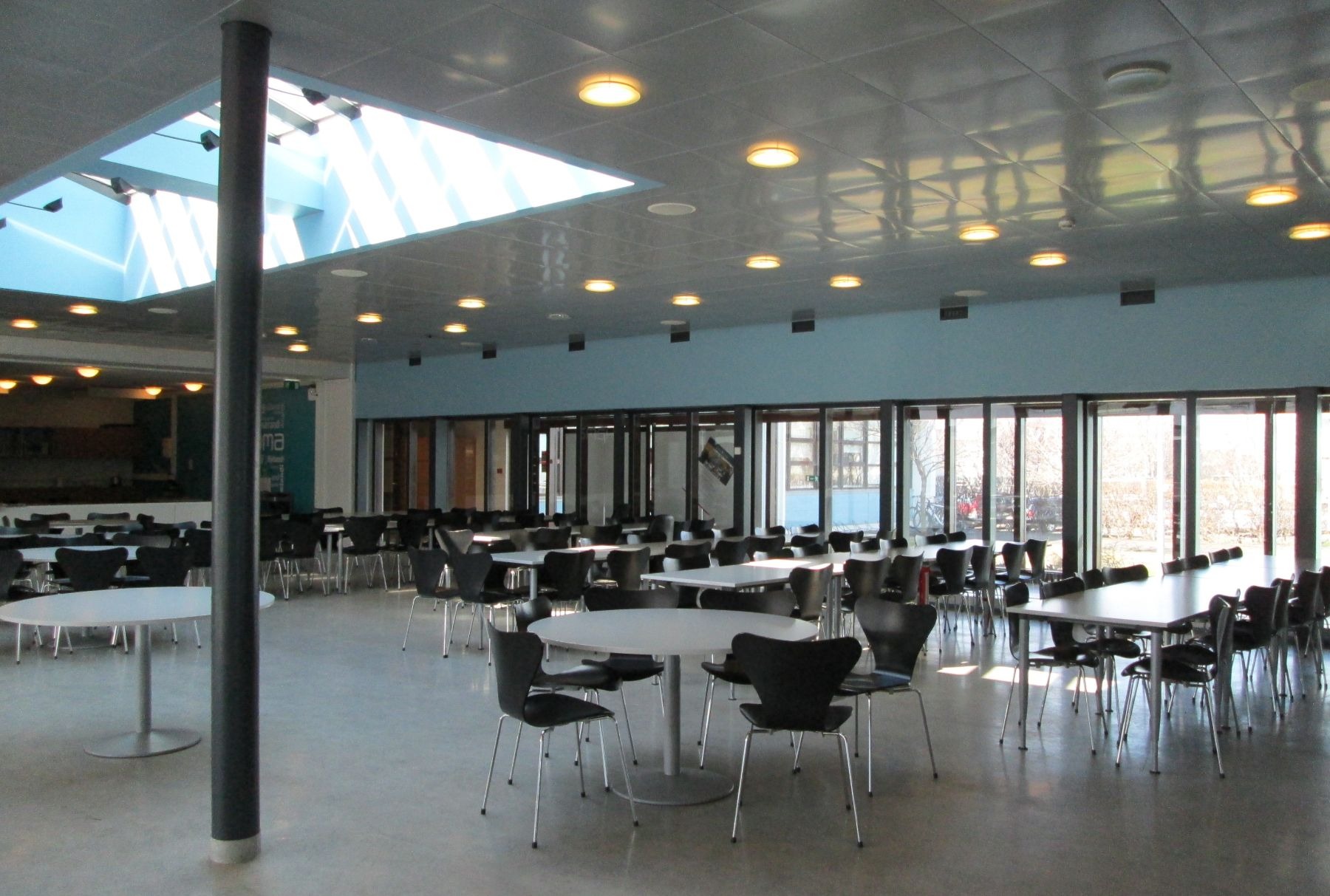University of Iceland
The School of Education
CoReD in Iceland
The compulsory school levels in Iceland range from grade 1 to 10 or 6 to 16 years of age. Most public schools at the primary and lower secondary school level span all ten grades. About 98% of the youngest population go to preschool from about 2 to 5 years of age and about 85% of young people go to upper secondary school for three or four years after completing their compulsory education. The history of public schools and school building design in Iceland, however, is relatively short, dating in essence from late industrialisation in the early 20th century to the present.
The oldest school buildings still in use for public schooling were designed around 1930 with many innovative features and spaces for special use or application reflecting sociocultural as well as educational ambitions. They were, nevertheless, at their core or in their basic form, made up of conventional classrooms of similar sizes laid out along corridors. Most school buildings erected throughout the 20th century followed this pattern and were built in a similar fashion. Several interesting exceptions from this rule, however, from the sixties or seventies to the turn of the millennium could be pointed out but will not be related here.
A significant shift in educational policy and educational governance took place as the new millennium was approaching and has had a radical effect on school building design from the early years of the 21st century to date. New legislation required an extended school day which called for one shift attendance and as a consequence additional space and more school buildings. An educational policy highlighting individualised learning, student collaboration, teamwork and flexible school practice was also introduced, most notably at the municipal level, and affected the design of new school buildings constructed in the early years of the new century to date. School buildings built in the last two decades have as a rule been designed to facilitate team teaching, offer flexible spaces for different activities and group sizes, and allow for open relations with the wider community. Variety, flexibility and open learning spaces have been assumed to promote high levels of individualised and collaborative practice, while closed, traditional classrooms have not. This new approach to school development has brought about school design emphasising flexibility, flow, openness, social dynamics and teamwork. Clusters of classrooms, transparent or movable boundaries, as well as open spaces allowing for manifold interactions in flexible groups, seem to replace the traditional design of classrooms along confining corridors (Sigurðardóttir and Hjartarson, 2011, 2016, 2018).
Schools in Iceland, participating in CoReD, are schools in older school buildings, mostly from the 20th century yet undergoing renovation. The school staff at each site is eager to explore different ways of using both older and newly renovated spaces for teaching and learning.
The tool developed by the Icelandic team of CoReD is the School Development Evaluation Tool.
About the University of Iceland
The University of Iceland is a public research university, founded in 1911 and situated in the heart of Reykjavík, the capital of Iceland. It is a progressive educational and scientific institution, renowned in the global scientific community for its research.
As a modern, diversified, and rapidly developing institution, the University of Iceland offers opportunities for study and research in over 400 programmes at undergraduate and postgraduate level, spanning most fields of science and scholarship, arranged in five academic schools.
The University has set itself the long-term goal of being ranked among the best universities in the world and to employ internationally recognised quality standards in all appraisement of its work. It is a research university and places great emphasis on quality in research. The University operates dozens of research institutions and centres, which are the venue for diverse research in various fields. Leading Icelandic scientists take part in research at the University, and each day strong innovative work takes place at the University of Iceland. Times Higher Education (2020) currently ranks the university among the 351 to 400 best in the world.
A new structure and governance system for the University made up of five academic schools and over twenty faculties came into force in 2008 when the University merged with the Iceland University of Education on the centenary of the latter. In addition, the University operates a number of research and service institutions. Seven study centres connected to the University are operated in rural areas; many of these attend to research based on localised knowledge. The University considers itself responsible for strengthening academia and research all over the country and the spectrum of its operations is growing rapidly.
University of Iceland: https://english.hi.is/
About the School of Education
The School of Education is one of five academic schools within the University of Iceland. The school is a national leading institution in education studies and well-being and has an important social role in regard to the education of teachers, social educators, leisure professionals, sport and health scientists.
Varied and ambitious research is carried out at the School of Education with an eye to create new knowledge for the benefit of Icelandic society. The Educational Research Institute, along with a university division of science and innovation, offers a range of services to support researchers, such as assistance in preparing applications for national and international competitive research funds.
Our academics participate in wide-ranging international research projects and collaborative networks around the world. Over twenty research centres operate at the School of Education. Their common goal is to increase and promote research in their fields by increasing the collaboration between researchers, including interdisciplinary and international collaboration, and to disseminate knowledge to the community by various means, such as conferences, seminars and educamps.
School of Education: https://english.hi.is/school_of_education/school_of_education
The Icelandic research team
Anna Kristín Sigurðardóttir
Anna Kristín is a professor in school improvement and educational leadership at the University of Iceland, School of Education. She is currently head of the Center for Research in Educational Development. She holds a B.Ed. in teaching, an M.Ed. in special education and a PhD in educational leadership from the University of Exeter in the UK. She is an experienced researcher in the area of systemic and school development with special focus on schools as a professional learning community and how the physical space might affect teaching and learning.
Torfi Hjartarson
Torfi is an assistant professor in pedagogy, instructional design and IT in education at the University of Iceland, School of Education. He was one of the founding editors of Netla – Veftímarit um uppeldi og menntun (Netla – Online Journal on Pedagogy and Education). He led the Teacher Association of the Iceland University of Education and was for several years politically active within the City Planning Council of Reykjavik. His research interests include creative uses of digital media and technologies, as well as physical learning environments for flexible school practice and project-based work.


